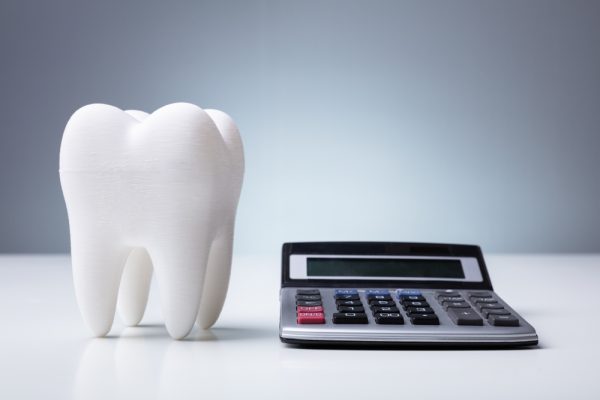How Much Do Dental Cleanings Cost?
The cost of dental cleaning varies widely depending on several factors. The average cost of dental cleaning in the United States ranges from $75 to $200 per session. However, the cost can go up if additional treatments are required. For example, scaling and root planing can cost up to $400 per session.

Factors That Influence Dental Cleaning Costs
Several factors can influence the cost of your dental cleaning. These factors may include:
- Location: The cost of dental cleanings varies depending on the location of the dental office. Dental offices located in urban areas tend to charge more than those in rural areas.
- Type of Cleaning: The cost of dental cleanings depends on the type of cleaning required. Routine cleaning typically costs less than periodontal maintenance or scaling and root planing.
- Dental Insurance: Dental insurance can significantly reduce the cost of dental cleanings. The amount of coverage varies depending on the type of insurance plan.
- Additional Treatments: If additional treatments are required, such as fluoride treatment or dental X-rays, the cost of dental cleaning can increase.
Additional Costs
Additional costs can sometimes accumulate during a dental cleaning. These costs can vary depending on the individual’s dental health and the type of cleaning required. Some additional costs that may arise during a dental cleaning include:
- X-rays: If X-rays are needed during a dental cleaning, there may be an additional cost. The cost of X-rays can vary depending on the number of images needed.
- Fluoride treatment: Fluoride treatment is optional, but can help protect teeth from decay. If a patient chooses to have fluoride treatment during their dental cleaning, there may be an additional cost.
- Deep cleaning: If a patient has a significant amount of tartar buildup or gum disease, they may require a deep cleaning, also known as scaling and root planing. Deep cleaning is more extensive than routine cleaning and can cost more.
- Dental sealants: Dental sealants are a protective coating applied to the teeth to prevent decay. If a patient chooses to have dental sealants applied during their dental cleaning, there may be an additional cost.
It’s important to discuss any potential additional costs with the dental office before scheduling a cleaning. Many dental offices will provide an estimate of the total cost of the cleaning and any additional treatments before the appointment.
Additionally, patients should check with their insurance provider to see if these additional treatments are covered under their plan. By understanding the potential additional costs associated with a dental cleaning, patients can make informed decisions about their oral health and finances.
Insurance and Financing
Dental Insurance
Insurance can significantly reduce the cost of dental cleaning. Most dental insurance plans cover routine cleanings and preventive care at no cost to the patient. However, if additional treatments are required, the patient may be responsible for a portion of the cost.
- Private Dental Insurance: Many employers offer dental insurance as part of their benefits package. Usually, these insurance policies cover preventive care (including tooth cleanings) at 100%, basic procedures at around 70 to 80%, and major procedures at about 50%. Policies may have an annual maximum benefit limit and may exclude pre-existing conditions.
- Individual Dental Insurance: If your employer doesn’t offer dental insurance or if you’re self-employed, you can purchase individual dental insurance. These plans may be structured similarly to private dental insurance plans.
- Government Programs: In the US, programs like Medicaid may cover dental cleanings for qualifying low-income adults and most children. The Children’s Health Insurance Program (CHIP) also covers dental care for children up to age 19 whose families earn too much to qualify for Medicaid but can’t afford private insurance.
- Discount Dental Plans: These aren’t insurance plans, but they can help you save on dental care. You pay an annual fee in exchange for discounts on dental procedures.
Financing Options
If a patient doesn’t have dental insurance, there are other financing options available. Some dental offices offer payment plans or financing options to help patients cover the cost of dental cleaning.
- Payment Plans: Some dental offices offer payment plans that allow you to pay off your dental cleaning costs over time. Check with your dental office to see if this is an option.
- Healthcare Credit Cards: These credit cards are designed specifically for healthcare expenses. They may offer interest-free promotional periods. However, interest rates can be high if the balance isn’t paid off during that time.
- Personal Loans: You can consider taking out a personal loan to pay for your dental cleanings. Be cautious, as loans come with interest and fees.
- Sliding Scale Clinics: Some community health clinics offer dental services on a sliding scale based on income.
- Dental Schools: Dental schools often offer services, including cleanings, at a lower cost than a typical dental office. These services are performed by students under the supervision of experienced dentists.

Frequently Asked Questions
It may be cheaper to pay out of pocket for a dental cleaning if you don’t have dental insurance. However, if you do have insurance, it’s usually more cost-effective to use your insurance benefits.
A dental cleaning typically includes a thorough cleaning of your teeth, including removing plaque and tartar buildup. Your dentist may also polish your teeth and apply fluoride treatment. During your appointment, your dentist will provide you with a breakdown of your treatment.
If you don’t get regular dental cleanings, you may be at risk for developing gum disease, tooth decay, and other oral health problems. Additionally, untreated dental issues can lead to more expensive and invasive dental procedures down the line. If you haven’t gotten a cleaning, schedule your appointment with your local dentist.
Dental Cleanings Are an Investment in a Healthy Smile
Don’t let the cost of dental cleaning prevent you from maintaining good oral health. Contact our Alaska dental office today to discuss their fees and potential financing options. Regular dental cleanings are an investment in your oral health that can save you from costly dental procedures down the line. Don’t wait, schedule your dental cleaning today!
